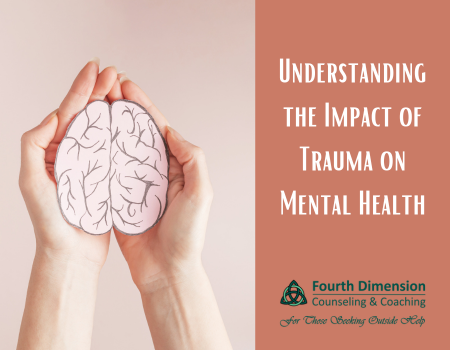Trauma is a deeply distressing or disturbing experience that can have lasting effects on an individual’s mental health, emotional, and physical well-being. Whether it stems from childhood abuse, accidents, natural disasters, war, or other life-altering events, trauma has the potential to shape a person’s psychological state and overall quality of life. Understanding the impact of trauma on mental health is crucial for providing support, fostering resilience, and promoting healing.
 How Trauma Affects the Brain and Mind
How Trauma Affects the Brain and Mind
Trauma can significantly alter brain function, affecting areas responsible for stress regulation, emotional control, and memory processing. When a person experiences trauma, the brain’s amygdala—responsible for detecting threats—becomes hyperactive, while the prefrontal cortex, which helps regulate emotions and rational thinking, becomes less effective. This imbalance can result in heightened anxiety, emotional dysregulation, and difficulty coping with stress.
Additionally, the hippocampus, which plays a role in processing and storing memories, may shrink due to prolonged trauma exposure. This can lead to fragmented or intrusive memories, making it difficult for individuals to differentiate between past and present threats.
Common Mental Health Effects of Trauma
Trauma can manifest in various mental health conditions, including:
- Post-Traumatic Stress Disorder (PTSD): Individuals with PTSD may experience flashbacks, nightmares, hypervigilance, and intense emotional distress when reminded of the traumatic event.
- Anxiety Disorders: Trauma can lead to excessive fear, panic attacks, and chronic worry, making daily functioning challenging.
- Depression: Feelings of sadness, hopelessness, and loss of interest in activities can emerge due to unresolved trauma.
- Dissociation: Some individuals detach from reality as a defense mechanism, leading to memory gaps or a sense of being disconnected from themselves.
- Substance Abuse: Many trauma survivors turn to drugs or alcohol as a way to numb emotional pain and cope with distressing memories.
The Long-Term Effects of Trauma
If left unaddressed, trauma can have long-term consequences on an individual’s well-being including their mental health. It can impact relationships, career stability, and physical health. Chronic stress from unresolved trauma has been linked to increased risks of cardiovascular disease, weakened immune function, and digestive disorders.
Additionally, trauma can affect interpersonal relationships by creating trust issues, emotional numbness, and difficulties in communication. Individuals may struggle with intimacy, fear vulnerability, or experience social withdrawal, making it difficult to maintain meaningful connections.
Healing from Trauma
Recovery from trauma is a gradual process that requires patience, self-compassion, and professional support. Some effective approaches to healing include:
- Therapy: Seeking help from a trauma-informed therapist can provide coping strategies, emotional validation, and techniques for processing traumatic memories. Cognitive Behavioral Therapy (CBT) and Eye Movement Desensitization and Reprocessing (EMDR) are commonly used for trauma treatment.
- Mindfulness and Meditation: Practicing mindfulness helps individuals stay grounded in the present moment and reduces anxiety linked to trauma triggers.
- Support Systems: Connecting with trusted friends, family members, or support groups can offer emotional reassurance and reduce feelings of isolation.
- Physical Activities: Exercise, yoga, and other physical activities release endorphins, which help improve mood and reduce stress.
- Journaling: Writing down thoughts and emotions allows individuals to process their experiences and gain a sense of clarity.
Trauma has profound effects on mental health, but healing is possible with the right support and interventions. Understanding how trauma affects the brain and emotional well-being allows individuals and communities to foster a compassionate and informed approach to recovery. By addressing trauma with care, resilience can be built, paving the way for emotional healing and personal growth.
